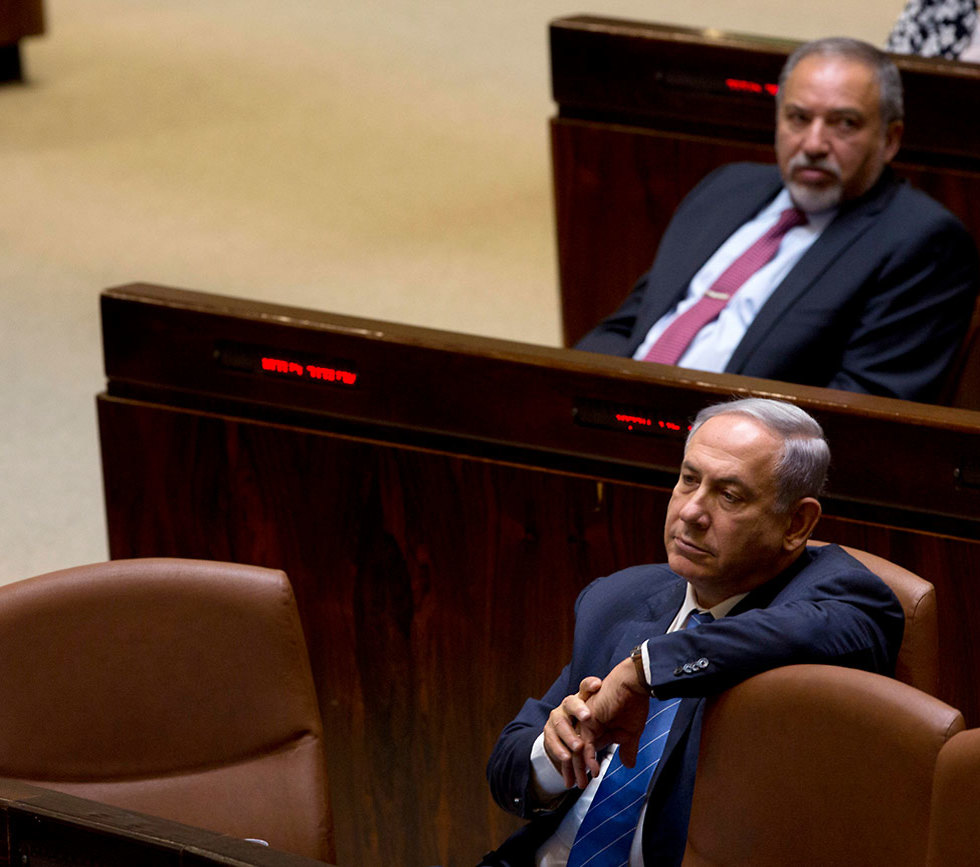
As political history shows us, a lot can happen in 24 hours, and the chances of finding a “creative” solution to the current coalition crisis still exist.
In the meantime, the battle over military draft exemptions for yeshiva (Jewish seminary) students rages on. This battle is mainly between Yisrael Beytenu Chairman Avigdor Liberman - who has recently acquired some political muscle - and the religious-Haredic bloc that is struggling to understand what’s hit them.
There is still an element of cynicism in this fight - since at the end of the day we’re still in the world of politics - but this time the nature of the struggle is one over Israel's fundamental values.
It’s a struggle for the character, identity and direction of the country. It’s one of the most important issues that decides whether we’re heading to “Israelization of the ultra-Orthodox” or, alternatively, to the “Haredization of Israel” (as Prof. Yossi Shain put it in his latest book, The Israeli Century).
Liberman might not have meant to but he has, paradoxically, become a symbol of secular Zionism, traditionally the bastion of the kibbutz and the left-wing. Nobody would have intentionally chosen him as the representative of Israel’s democratic and liberal values.
He certainly did not intend to become the servant of the Jewish-democratic camp, but inadvertently has, at least for the past few days.
Meanwhile, Likud and their allies have been trying in recent days to present the Yisarel Beytenu leader as a spoiled brat with “only five Knesset seats,” who’s trying to dictate to the Haredi-right-wing coalition that won the elections how to behave.
They are mistaken, because without Liberman's seats this HHaredi-right-wing coalition falls apart. This political standoff, however, is definitely not a public one, as Liberman has the support of most Jewish people in Israel and even the support of most right-wing voters who would rather have Israelization than Haredization.
Israel has for years been ruled by a minority that succeeded in cancelling the expansion of an egalitarian prayer space at the Western Wall, managed to see off core curriculm subjects in their schools, perpetuated inequality in IDF recruitment, boosted budgetary allocations for unemployment benefits (the ultra-Orthodox community has relatively high unemployment rates) and much more.
Although there are signs of modernization within the Haredi public, the ultra-Orthodox leadership, by virtue of the coalition system, has become quite used to having this coercive power over the majority of Israelis.
For the Haredi lawmakers, blackmail became a way of life long ago, but now suddenly Liberman has come along and dared to play by the exact same rules as they do. Except Liberman, unlike the ultra-Orthodox, has the backing of the Israeli public.
During this last election campaign, there wasn’t a single issue on the agenda that was realistically achievable (and if it were achievable, it was never properly discussed),. This is because the entire campaign revolved around Benjamin Netanyahu, who the more he was bashed by others, the stronger he became.
He won the national vote and appeared to clinch all the needed coalition agreements. Until Liberman decided to remind everyone there are more important issues than Knesset seats.
Liberman was given the coveted defense ministry and key committee chairmanships, and could have had even more if he had but asked. But, believe it or not, he insisted on sticking to his principles and - sincere or not - it was a refreshing change in Israeli politics.
It’s also refreshing for an Israeli public that’s used to being the bottom of the list during coalition negotiations. If the ultra-Orthodox minority is allowed to drive us mad, then surely Liberman is also allowed to drive them mad (and if he had been unwilling to do it, we would have been forced to invent someone who was).
If the new elections do indeed go ahead, they might not actually lead to a different outcome and ultimately be just one giant waste of resources.
But if Liberman's stubborness manages to put an end to the rule of the minority in the Knesset - or even merely put a crack in the foundations of this system - it’s well worth the price.



















